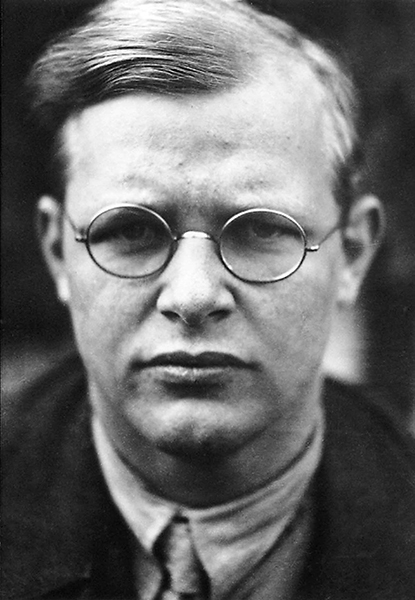 As I continue to prepare for a potential ordination next year, I’m doing lots of reading, scripture memory and study. Over the past several months, I’ve been listening to and reading a biography of Dietrich Bonhoeffer (1906 – 1945) by Eric Metaxas, Bonhoeffer, Pastor, Martyr, Prophet, Spy. Bonhoeffer was a German pastor executed by Hitler just before the end of WWII, whose writings, particularly The Cost of Discipleship, have been widely influential. Although I haven’t been able to read much he has personally written, and understand there would be some points of disagreement, I learned several things from his life.
As I continue to prepare for a potential ordination next year, I’m doing lots of reading, scripture memory and study. Over the past several months, I’ve been listening to and reading a biography of Dietrich Bonhoeffer (1906 – 1945) by Eric Metaxas, Bonhoeffer, Pastor, Martyr, Prophet, Spy. Bonhoeffer was a German pastor executed by Hitler just before the end of WWII, whose writings, particularly The Cost of Discipleship, have been widely influential. Although I haven’t been able to read much he has personally written, and understand there would be some points of disagreement, I learned several things from his life.
Here are some snippets from the book.
- Bonhoeffer didn’t grow up in a religious home. In fact, when Dietrich announced his choice to study theology, his brother Klaus called the church a “poor, feeble, boring, petty bourgeois institution.” “In that case,” said Dietrich, “I shall have to reform it!” (p. 38)
- The racism he saw inside the church against Jews in Germany, and then toward blacks in parts of America appalled him. In America as an 18 year old, he visited a church racially diverse in clergy and attendants. He commented that this day was “the first day that something of the reality of Catholicism dawned on me, nothing romantic or the like, but rather that I am beginning, I believe, to understand the concept ‘church.’…The universality of the church was illustrated in a marvelously effective manner. White, black, yellow members of religious orders—everyone was in clerical robes united under the church. It truly seems ideal.” (p. 53)
- His hope for the church rested in its commitment to the Bible. “The church still has the Bible, and as long as she has it we can still believe in the holy Christian church. God’s word will never be denied (Isa. 55:11)…” (p. 57)
- His theology needed to be personal enough to communicate simply to children. “[H]e often said that if one couldn’t communicate the most profound ideas about God and the Bible to children, something was amiss. There was more to life than academia.” (p. 64) In 1932 He told Hildebradnt, “A truly evangelical sermon must be like offering a child a fine red apple or offering a thirsty man a cool glass of water and then saying: Do you want it?” (p. 272)
- He loved and treasured “negro spirituals.” (p. 108)
- He thought hard about his Christianity. One of his students remembers, “he did not indulge in cheap apologetics which from their lofty base fire upon the battlements of natural science. We must think with the doubter, he said, even doubt with him.” (p. 125)
- He loved Children. Shortly after his ordination, he taught a confirmation class to 50 boys in a notoriously tough neighborhood in North Berlin. Unlike in America, confirmation class was effectively mandated by the state. To quiet the boys on the first day, he almost whispered a story about teaching in Harlem, promising them more the next time if they listened. “What helped the most was that I simply told the stories form the Bible with great emphasis, particularly the eschatological passages.” He visited each of their homes, and instructed his landlord to allow the boys into his room even in his absence. (p. 130-134)
- He love reading the Bible. “And I would like to tell you now quite personally: since I have learnt to read the Bible in this way—and this has not been for so very long—it becomes every day more wonderful to me. I read it in the morning and the evening, often during the day as well, and every day I consider a text which I have chosen for the whole week, and try to sink deeply into it, so as really to hear what it is saying. I know that without this I could not live properly any longer.” (p. 137)
- Meditation, prayer and communion are vital parts of ministry. When a church leader told him, “We have no time for meditation now, the ordinands should learn how to preach and to catechize.” He replied “That seems to me either a complete misunderstanding of what young theologians are like today or a culpable ignorance of how preaching and catechism come to life. The questions that are seriously put to us today by young theologians are: How do I learn to pray? How do I learn to read the Bible? If we cannot help them there we cannot help them at all.” (p. 271)
Metaxas, Eric (2010-04-20). Bonhoeffer: Pastor, Martyr, Prophet, Spy. Thomas Nelson. Kindle Edition.
